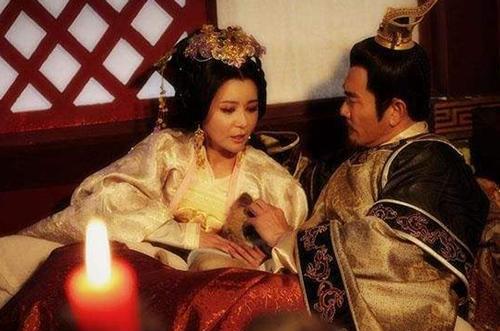The names of beauties, the 3 women who took this name in history, were all married to the emperor
But whenever a child is born, parents want to give him a good name. Most parents always want their daughter's name to sound good and cultured, so many people often look for ancient books to name their daughters. In fact, in addition to ancient books, the names of historical figures can also be used as a reference. In ancient times, for example, there was a name specifically named for beautiful women. The three women who took this name married the emperor.

The first woman to take this name was Yin Lihua, the empress of Liu Xiu, the founding emperor of the Eastern Han Dynasty. The Book of Later Han records that Liu Xiu was only a commoner before becoming emperor. When visiting Chang'an, he said a classic sentence: "The eunuch is treated as a jinwu, and the wife is yin lihua." That is, men are content to be able to take up the position of Kingo in their lifetime, marrying Yin Lihua.
"Zhi Jinwu" was an official who led the Forbidden Army in the Han Dynasty to defend the capital and the imperial city. He had a very high position and had always been very prestigious. Yin Lihua is a famous beauty in Nanyang Xinye, and Liu Xiu is also from Nanyang County. When he arrived in Shinno, he heard about Yin Lihua's beauty and virtues, and fell in love with her.
Later, when the day fell into chaos, Liu Xiu launched an uprising from his hometown. After his career was successful, he proposed to the Yin family and really married Yin Lihua. Liu Xiu established the Eastern Han Dynasty, and Yin Lihua was rewarded. In 41 AD, Liu Xiu deposed the original empress Guo Shengtong and replaced yin Lihua as empress. They are very much in love. After Yin Lihua died, she and Liu Xiu were buried in the original cemetery.
The second woman to take this name was Zhang Lihua, a concubine of Chen Shubao, the Empress Chen of the Southern Dynasty. Zhang Lihua was born in 559 AD and is known for her beauty. However, her family was poor. It was not until the age of 10 that Zhang Lihua was selected into the imperial palace and became the maid of Prince Chen Shubao, which ushered in a turning point in her fate.
According to historical records, Zhang Lihua was born very beautiful, with long black and silky hair, and her eyes seemed to bloom very brightly, which made people fascinated. Therefore, when Lord Chen Hou saw her for the first time, he was deeply fascinated by her. In 582, Chen became emperor, making Zhang Lihua a noble concubine. Get together with her every day.
Chen Hou was not enthusiastic about handling political affairs and always asked Zhang Lihua for help. He also presided over the compilation of songs such as "Flowers in the Backyard of Yushu" and praised Zhang Lihua's beauty. In 589, the Sui Dynasty attacked Nancheng. Yang Guang, the King of Jin, led an army into the capital of the State of Chen and captured Chen Hou and Zhang Lihua. It is said that Yang Guang saw that Zhang Lihua was very beautiful and wanted to take her in as a concubine, but was later persuaded and finally killed Zhang Lihua.
Coincidentally, the third woman to take this name is Yang Lihua. She is Yang Guang's older sister. Yang Lihua's father was The Sui Emperor Yang Jian, and his mother was Gallo, who lived alone. Yang Lihua was born in 561, and Yang Jian was only a minister of Northern Zhou.
When Yang Lihua grew up, she married Emperor Wenyan of the Northern Zhou Dynasty and was given the title of empress. Yu Wenyan was addicted to wine and wanted to kill Yang Lihua. Because Yang Lihua's mother entered the palace alone to request, Yang Lihua survived. After the fall of Northern Zhou, the establishment of the Sui Dynasty, and the fall of Yu Wenyi, Yang Lihua lived in peace until the fifth year of the Sui Dynasty (609), when Yang Lihua died.